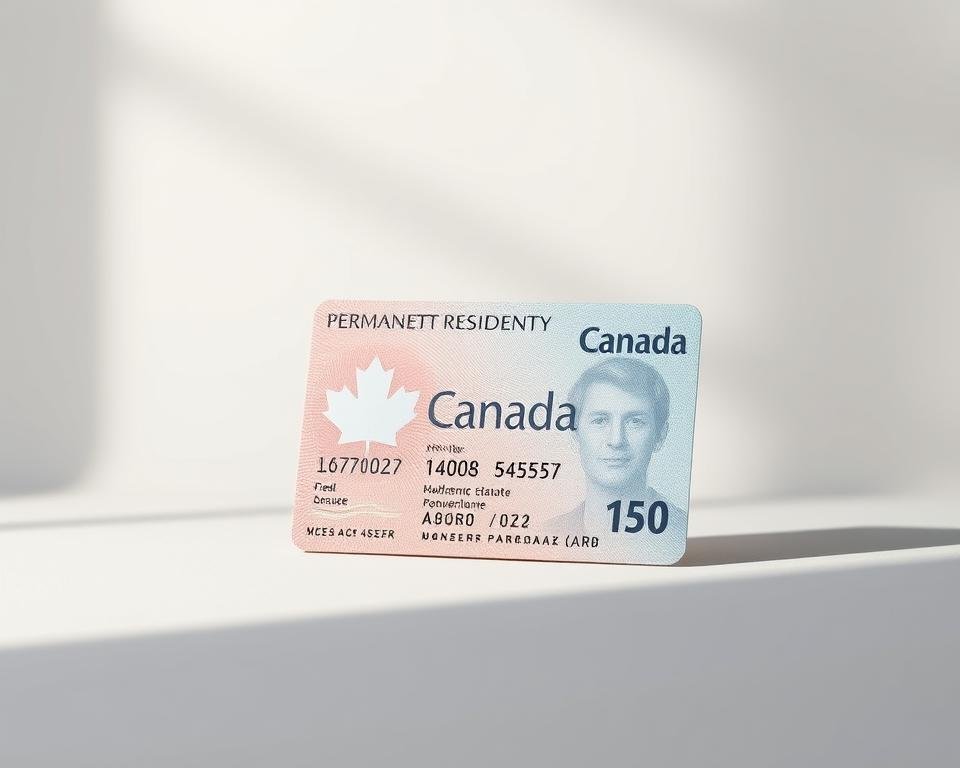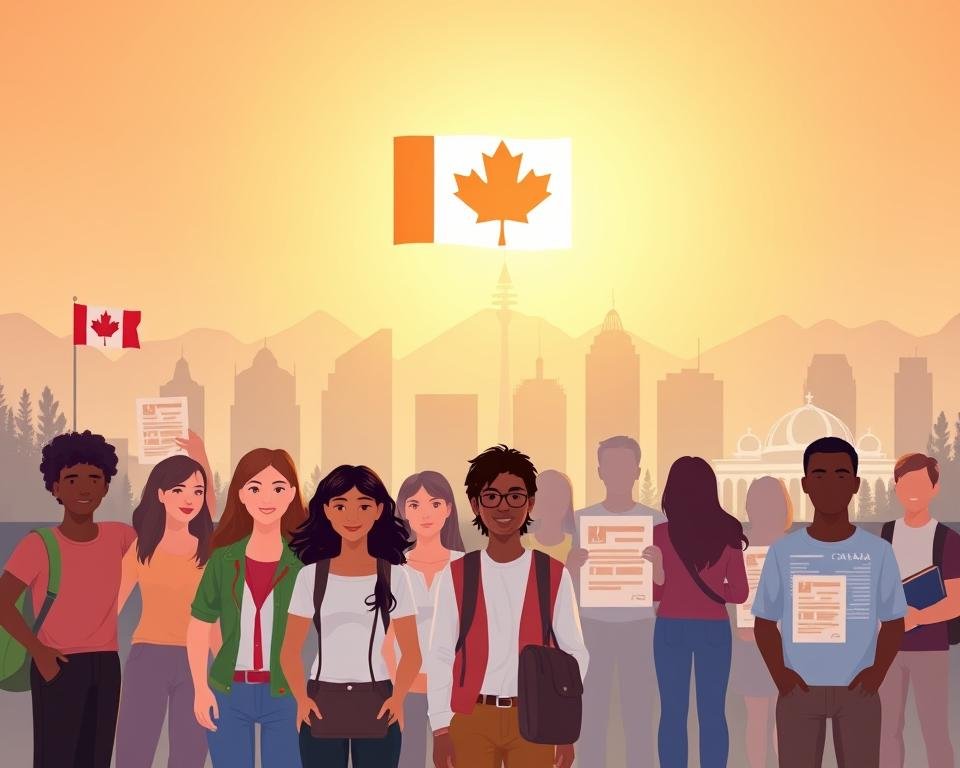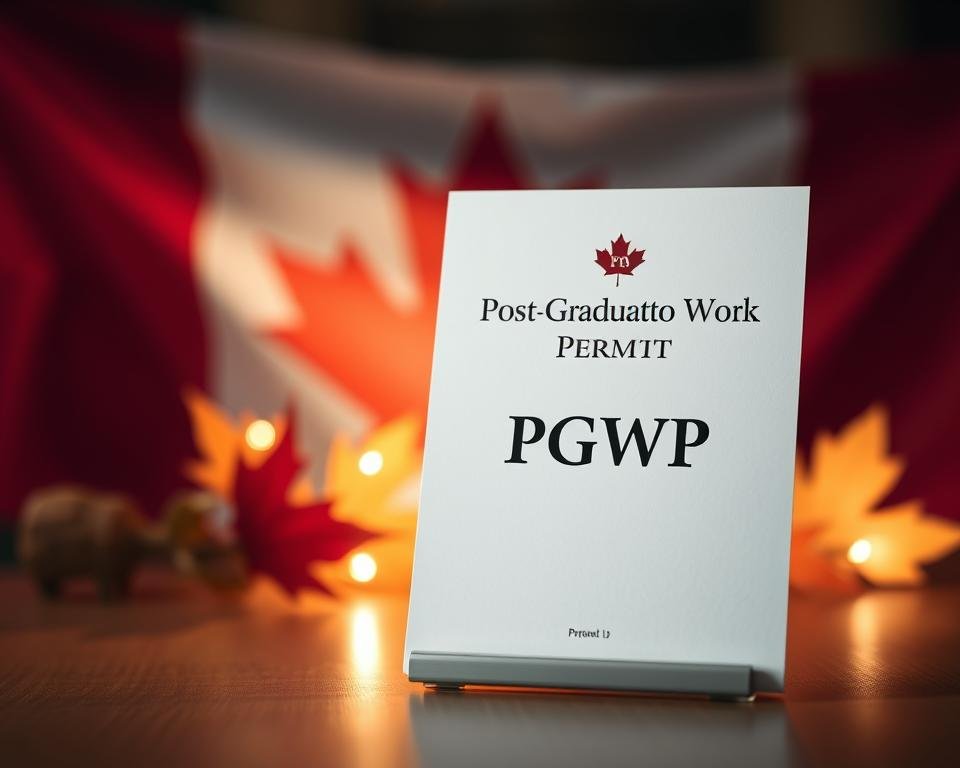How to Get Permanent Residency in Canada after Study

Imagine stepping off a plane in Canada, feeling the campus's vibrant energy all around. You studied hard at one of Canada's top schools, making the most of every moment. Now, as graduation nears, you wonder about your future here.
Getting permanent residency in Canada after studying is possible. You can explore Canadian immigration paths like the Post-Graduation Work Permit and Express Entry. These options can help you smoothly move from student to permanent resident.
This section will walk you through the key steps and choices. You'll be well-prepared for this new chapter in Canada.
- Understanding Permanent Residency in Canada
- Canadian Immigration Pathways for International Students
- Post-Graduation Work Permit (PGWP) Overview
- Express Entry for International Students
- Canadian Experience Class
- Provincial Nominee Program for Students
- Applying for PR in Canada: Step-by-Step Guide
- Meeting Canadian PR Requirements
- Path to Becoming a Permanent Resident in Canada
- Transitioning from Study to PR in Canada
- Gaining Canadian Work Experience for PR
Understanding Permanent Residency in Canada
Canadian permanent residency lets people live and work in Canada without the limits of temporary stays. It offers access to healthcare, the freedom to live anywhere, and a chance to apply for citizenship later.
The process to get permanent residency is detailed and follows strict rules. You need to show your skills, education, work history, and language skills. It's key to be well-prepared for this journey.
As a permanent resident, you must follow Canadian laws. This helps you keep your status and makes settling in Canada easier.

Canadian Immigration Pathways for International Students
International students in Canada have more than just their studies to look forward to. There are many ways to move from studying to becoming a permanent resident. Knowing these paths can really help with planning for the future.
The Post-Graduation Work Permit (PGWP) is a great option. It lets students work in Canada, gaining valuable experience. This experience makes their resumes stronger and helps with permanent residency applications. Working in Canada also shows they can adapt to the local job market.
The Express Entry system is another important path. It looks at skills, work experience, and education, helping those who studied in Canada. Those who do well get to apply for permanent residency, a big step towards settling in Canada.
The Canadian Experience Class is for those with Canadian work experience. Students who have worked in Canada can use this to improve their chances of becoming a permanent resident. This shows how important it is to have practical experience while studying.

Exploring these paths helps international students make smart choices for their future in Canada. A well-thought-out plan can lead to a smooth transition from studying to becoming a permanent resident.
Post-Graduation Work Permit (PGWP) Overview
The Post-Graduation Work Permit (PGWP) is a great chance for international students in Canada. After finishing their studies, students can apply for a PGWP. This lets them work in Canada and gain valuable experience.
This experience is not just for now. It also helps students move towards permanent residency in Canada.
Eligibility Criteria for PGWP
To get a PGWP, students need to meet certain criteria. Important points include:
- Studying at a designated learning institution (DLI)
- Completing a program that is at least eight months long
- Holding a valid study permit upon applying for the PGWP
Knowing the PGWP eligibility helps students prepare well. This increases their chances of getting the permit.
Application Process for Post-Graduation Work Permit
The PGWP application process has several steps. Here's what to do:
- Gather all needed documents, like proof of program finish and your study permit.
- Apply online within 180 days after getting confirmation of program completion.
- Pay the required fees when you submit your application.
By following these steps carefully, students can increase their chances of getting a PGWP. This lets them start working in Canada after graduation. For more details on eligibility and application, check out this complete guide.

Express Entry for International Students
The Express Entry system is a fast way for international students to get permanent residency in Canada. It's for skilled workers, including graduates who meet certain criteria. There are three programs: the Federal Skilled Worker Program, the Federal Skilled Trades Program, and the Canadian Experience Class. Each has its own rules, so it's key to know what you need to apply.
What is Express Entry?
Express Entry is an online way to apply for permanent residency. You create a profile with your skills and work history. Then, it's ranked by points. This helps find the right workers for Canada's job market.
It's great for skilled workers, including students who have worked in Canada after studying.
Express Entry Eligibility Requirements
To join the Express Entry pool, you must meet certain rules. These vary by program. Here are some common ones:
- Language Proficiency: You need to show you can speak English or French well.
- Educational Credentials: You must prove your education, often through a service that checks credentials.
- Work Experience: You need work experience in a skilled job for some programs.
- Age: Being in your prime working years can give you more points.
- Admissibility: You must pass health and security checks to be eligible.
Knowing these requirements is key for a good application. Meeting them can help you get permanent residency through Express Entry.
| Eligibility Criterion | Details |
|---|---|
| Language Proficiency | Minimum CLB 7 in English or NCL 7 in French |
| Educational Credentials | Assessment required for all non-Canadian education |
| Work Experience | Must have at least one year of skilled work experience |
| Age | Maximum points for ages 20-29 |
| Admissibility | Must pass health and security checks |
Canadian Experience Class
The Canadian Experience Class (CEC) is a key way for people to get permanent residency in Canada. It values those who have worked in Canada and aims to make the process easier for them. This program helps those who have already settled in Canada.
To apply for the CEC, you need to meet certain requirements. You must have at least one year of skilled work in Canada in the last three years. Your work must be in a job that requires a high skill level, as classified by the National Occupational Classification (NOC).
Language skills are also important. You need to show you can speak English or French well. Passing a language test is essential to prove you can work in Canada.
Studying in Canada can also help your application. Adding your education to your work experience makes your application stronger. It shows you are committed to living and contributing in Canada.
Provincial Nominee Program for Students
The Provincial Nominee Program for students is a way for international graduates to get permanent residency in Canada. Each province has its own rules for who can apply. Knowing how to apply is key for those wanting to live in Canada.
This program values the skills and education of international students. It also sees their value to local communities.
How to Apply for a Provincial Nominee Program
To start the PNP application process, follow these steps:
- Find out which provinces you can apply to and what they need.
- Collect all the documents you need, like your degree and job offers.
- Send in an Expression of Interest (EOI) to your chosen province.
- Get a nomination from the province, which helps your permanent residency chances.
- Then, apply for permanent residency through the federal process.
Benefits of Provincial Nomination
The PNP offers many benefits for international students:
- Faster processing times than other ways to immigrate.
- More points in the Express Entry system, making your application stronger.
- Opportunities to work in local job markets and build community ties.
- Help from provincial governments to settle in Canada.
Knowing these benefits can help international students succeed in getting permanent residency in Canada through the provincial nominee program.
Applying for PR in Canada: Step-by-Step Guide
Those eager to apply for PR in Canada must be thorough. Start by gathering all needed documents. These include education proof, language tests, and work history.
It's key to know the PR application process well. You'll need to fill out forms like the Canada Immigration Form (IMM 0008) and the Generic Application Form for Canada. Make sure all details are correct and current to boost your chances.
After filling out the forms, send them to the right Canadian immigration office. Keep track of how long it takes to process your application. Also, watch for updates from Canadian officials about your application.
Those who studied in Canada have easier paths to PR. Using study and work permits can help. This knowledge makes the journey to permanent residency smoother. It also helps with future citizenship applications.
Staying in touch with immigration officials is important as you apply for PR in Canada. Being well-informed and thorough shows you're serious about becoming a resident of this diverse country.
Meeting Canadian PR Requirements
To get permanent residency in Canada, you need to meet legal, medical, and financial rules. You must show you follow immigration laws and can support yourself in Canada. The application process is detailed, and you'll need to provide a lot of documents.
Many things can help or hurt your PR application. Having a higher education is a big plus. Work experience, mainly in Canadian jobs, also helps a lot. Knowing English or French well is key because it affects your score.
Factors Affecting PR Application Success
- Education Level: Higher educational qualifications can increase scores and improve application chances.
- Work Experience: Relevant work experience, specially in in-demand occupations, can favorably impact approval.
- Language Proficiency: Strong skills in English and/or French are essential for scoring well in the immigration process.
- Age: Younger applicants may receive higher points in the PR points calculator, as they are perceived to have a longer work life ahead.
- Adaptability: Factors such as previous study or work experience in Canada can boost application success.
PR Points Calculator: Understanding the Scoring System
The PR points calculator helps you see if you're eligible for permanent residency. It scores you based on age, education, work experience, and language skills. By using it, you can find areas to improve your application.
Knowing how to get the most points can really help your chances of getting permanent residency. It's a useful tool for making your application stronger.
Path to Becoming a Permanent Resident in Canada
International students in Canada have a clear path to permanent residency. This path offers them significant advantages and opportunities. The journey starts with careful planning during their studies.
By leveraging their educational experiences, they can transition smoothly from study to work. This creates a stronger profile for future residency applications.
To follow the path to permanent residency in Canada, international graduates often apply for the Post-Graduation Work Permit (PGWP). This work experience enhances skills and builds a competitive resume. It's essential for Express Entry eligibility.
Students who strategically navigate their time in Canada can maximize their chances of attaining long-term residency. Employers often seek candidates with local education and work experience.
By focusing on relevant roles during the PGWP and accumulating necessary experience, students improve their prospects. This approach allows for a smoother transition into the Canadian workforce. It paves the way towards permanent residency.
Transitioning from Study to PR in Canada
The journey from student to permanent resident in Canada is both exciting and challenging. Planning and understanding the various pathways for international students is key. It's important to research all immigration strategies that fit your qualifications and experiences in Canada.
Building a strong professional network during your studies is effective. Networking can lead to job opportunities in areas that seek skilled workers. This is vital because a job offer is often needed for many immigration pathways.
It's also important to keep upgrading your skills and qualifications. This makes you more competitive in the job market and meets immigration requirements. Many candidates have taken courses or gained certifications for their desired occupations.
International student pathways, like the Provincial Nominee Program or the Canadian Experience Class, are popular. Staying informed about their eligibility and application processes is helpful. This knowledge will aid in your transition.
For more insights into specific occupations in rural Canada, refer to this resource. It offers valuable information for choosing career paths after studying.
Understanding each immigration strategy increases your chances of a smooth transition. With the right resources, support, and determination, you can confidently navigate this phase.
Gaining Canadian Work Experience for PR
Getting Canadian work experience is key for international students aiming for permanent residency. Working in Canada can really help your PR application. It boosts your skills and shows you know Canadian work culture.
There are many ways to get work experience, like internships and co-op programs. These let students use what they learned in class in real jobs. Also, some companies help find jobs for students, which is great for PR applications through Express Entry or the Canadian Experience Class (CEC).
Having good Canadian work experience makes your PR application stronger. Knowing how to use work placements in your field can really help. For tips on finding jobs, check out job opportunities for international students to improve your chances of getting permanent residency in Canada.
If you want to know other articles similar to How to Get Permanent Residency in Canada after Study You can visit the category Migration.

Leave a Reply